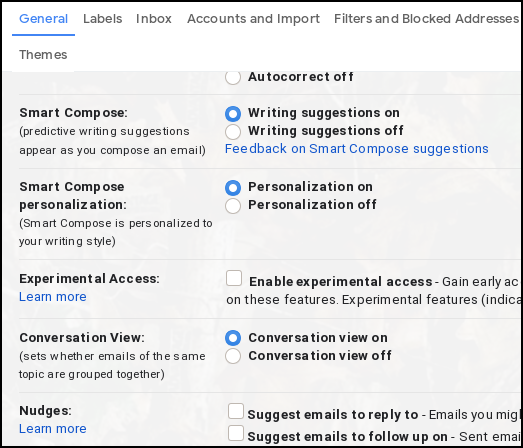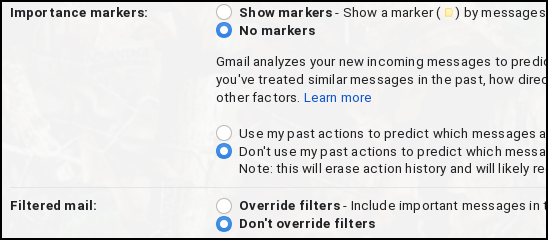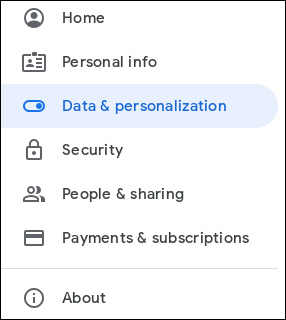| Previous
Page |
PCLinuxOS
Magazine |
PCLinuxOS |
Article List |
Disclaimer |
Next Page |
Some Steps To Thwart Google Tracking |
|
by Paul Arnote (parnote) Tracking your every movement across the internet IS what big tech companies do. By now, everyone should be highly familiar with Facebook tracking (Wired article) horror stories, where they track even non-Facebook members, gobbling up truckloads of data about where someone has been on the internet, what they viewed, what they clicked on, what their interests are, who they interact with, etc. The website MakeUseOf has written an excellent article on some sound ways to thwart tracking by Facebook. In fact, you should have very little problems finding information on how to curb Facebook tracking. It has received considerable press over the past few years. (Don't worry. The link is to the DuckDuckGo search engine, which claims to not track your movements across the internet. What? You thought I'd send you to Google when this article is about thwarting Google tracking?)  It has become an accepted "normal" that big tech companies want to vacuum up as much data as possible. I've said it many times before in the pages of this magazine: your data and information ARE the currency d'jour in the "great information age." As you might imagine, Google, being one of the largest -- if not the largest -- tech companies on the planet, wallows in a pool of user data and information that makes all of the oceans of the world seem like small puddles in a newly paved parking lot. Google, Facebook and all of the other tech "giants" argue that they go to extraordinary lengths to "protect" your data and its anonymity. They argue that they need that data to target you with advertising and content that you are interested in. While it's true that advertising and selling advertising is a HUGE business for these companies, I have yet to find much of any advertising "served up" to be of any interest to me. AND, I don't have a Facebook account (never have, never will), so I can't vouch for activity there. However, I have heard countless stories from friends and acquaintances about Facebook tracking. Many have said that they would search for something, and then the next time that they logged into their Facebook account, they were bombarded with advertising and content related to their recent search! Now, tell me that isn't a bit spooky. Big Brother IS watching. It's just that everyone thought Big Brother would be the government(s) and government agencies (and they do a whole host of their own surveillance and tracking, but that's something we've covered before and beyond the scope of what we are talking about here). In this particular case, the tech giants have become Big Brother. It's one thing if I go to Ebay and search for a "new" used laptop, and then start getting emails asking if I'm interested in this or that or another laptop. I searched for such an item on their website, voluntarily providing that information. It's the same thing on Amazon, or any other online retailer. It happens all the time. On Sportsman's Guide, any time I go to "look" at something without making a purchase, it's just a few hours later that I get an email asking if I'm still interested in that particular item(s). And then, they keep sending me "personalized" suggestions for much of the next two weeks, listing the items I went there to look at. That is all perfectly understandable. But it's not acceptable or understandable that when I search for something on one platform, and then log into another unrelated platform, that I'm inundated with advertising from the search I completed on a separate platform just before logging in. How Much Can We Stop The Tracking? Well, you probably won't be able to completely stop the tracking. When you signed up to use these services, you agreed to the data collection. You know ... those "End User Agreements" that are written in such legalese that NO ONE (other than the lawyers who draw them up) has ever read, much less understood. If you're like 99.999999 percent of users out there, you've never read the EUA. Instead, you scroll to the end to just click "Agree" and get on with things. But, there are things you can do to seriously curb the amount of data that is vacuumed up by the tech giants. Covering some of those is what we will attempt to do in this article. The First Stop: Google Analytics This one is HUGE. It is what drives, in a large sense, Google's collection of YOUR data. But, before we set about to confine or restrict its activity, we probably should know what it is. Here's the description from Wikipedia: Google Analytics is used to track website activity such as session duration, pages per session, bounce rate etc. of individuals using the site, along with the information on the source of the traffic. It can be integrated with Google Ads, with which users can create and review online campaigns by tracking landing page quality and conversions (goals). Goals might include sales, lead generation, viewing a specific page, or downloading a particular file, Google Analytics' approach is to show high-level, dashboard-type data for the casual user, and more in-depth data further into the report set. Google Analytics analysis can identify poorly performing pages with techniques such as funnel visualization, where visitors came from (referrers), how long they stayed on the website and their geographical position. It also provides more advanced features, including custom visitor segmentation, Google Analytics ecommerce reporting can track sales activity and performance. The ecommerce reports show a site's transactions, revenue, and many other commerce-related metrics. On September 29, 2011, Google Analytics launched Real Time analytics, enabling a user to have insight about visitors currently on the site. A user can have 100 site profiles. Each profile generally corresponds to one website. It is limited to sites which have traffic of fewer than 5 million pageviews per month (roughly 2 pageviews per second) unless the site is linked to a Google Ads campaign. Google Analytics includes Google Website Optimizer, rebranded as Google Analytics Content Experiments. Google Analytics' Cohort analysis helps in understanding the behaviour of component groups of users apart from your user population. It is beneficial to marketers and analysts for successful implementation of a marketing strategy. If that doesn't set you back in your chair, its prevalence should. Of the websites that use analytics, Google Analytics is used by over 84% of them. That represents nearly 55% of all websites. Yikes! Over half! So how do we go about "curbing" Google Analytics appetite for your data? FIRST, you can use a Google Analytics Opt-Out extension for your web browser. It supports Firefox, Google Chrome, Internet Explorer, Opera, and Safari web browsers. This could be a good first step, but beware of a couple of pitfalls. First, it may seem to be a bit counterintuitive to download software to prevent other software from tracking you. It is, however, better than using cookies, which could be deleted whenever you clear out your cache of cookies. On my computer, I use an automatic cookie deletion extension (for Firefox; also available for Chrome) that automatically deletes cookies from any website that I visit that I have not "whitelisted." There are similar browser extensions for many of the major browsers. The problem with this approach becomes very apparent when/if you use multiple web browsers. You will have to download multiple copies of the extension, one for each browser you use, if it's even available. SECOND, you could block Google Analytics with a firewall, using IP address ranges or domain names. If you use a firewall, you could block it for your whole network. But blocking by IP address ranges could also inadvertently block other services that originate from the same IP address. IP addresses can also change without notice. You could block DNS requests from specific domain names by adding a rule to block google-analytics.com and www.google-analytics.com to prevent Google Analytics from completing its mission. But, since Google Analytics is loaded over HTTPS, after the DNS request, it may fail anyway, unless the server uses SNI (Server Name Indication). THIRD, you could block Google Analytics by blocking JavaScripts. There are several browser extensions that allow you to block JavaScript execution on all but your "whitelisted" websites. One of the more popular ones is called NoScript, available for Firefox and Chrome browsers. If you find that a website you frequent is "broken" with the scripts blocked, then you can whitelist it. Many browsers also allow you to disable JavaScript, but you may find that may not be the best option, since many websites depend on JavaScript to function properly. By disabling JavaScript, you may have a significantly less enjoyable time cruising around the web. FOURTH, and probably the best solution, is to make a two-line addition to your /etc/hosts file. Here's my original hosts file:
# generated by drakconnect Not much to it. Now, add the following two lines at the bottom of the hosts file, as shown below:
# generated by drakconnect What we are doing here is assigning a non-existent IP address to Google Analytics. This will cause any request from Google Analytics to be terminated, instead of being sent to Google. Now, as the root user in a terminal session, type service network restart to restart the network service. This will cause your computer to use the newly altered hosts file. The same thing will happen if you restart your computer, if you choose to not type these simple commands at a root prompt in a terminal. It would probably be a good idea to also close, and then reopen, any browser windows you have running. Now, all of the Google Analytics requests for information will be blocked. The Second Stop: Gmail Gmail?!?! Yes, Gmail can be at the root of Google tracking your web movements. This is especially true if you have Gmail's "smart features" turned on. It should be no secret that especially when you use Google services (e.g., Gmail), Google collects a LOT of information about you. Their usual M.O. (modus operandi) is to sell targeted advertising to you. Of course, they also use the data they collect to make improvements to various Google services. Data collected from Gmail, Chat and Meet services were used to make those services "more convenient." If the "smart features" are turned on, it learns how you write so that it can make suggestions for automatic sentence completion, and suggests automated replies (which are nearly always grammatically incorrect). Of course, to do this, Google must comb through your data in those services.  Scroll down about one-third to one-half of the way through the "General" tab. Once there, you will see several "Smart" features listed: Smart Compose, Smart Compose personalization, Nudges, and Smart Reply. They are, of course, turned on by default. So, you need to go into Gmail, select "See All Settings" from the Settings icon, and then scroll down to the "Smart" settings. Once there, you can turn them off, which will help Gmail to keep from tracking you.  Next, go to the "Inbox" tab, and deselect all of the "Importance markers." I don't know about you, but I really don't need Google to tell me what is important to me. To do so, Google has to "read" your email. There simply is no other way around it. While you're there, also tell Gmail to "Don't override filters," which is right below the "Importance markers." The Third Stop: Control Your Google Data We've covered this before, but it's worth reviewing again in connection with what you can do to minimize Google's tracking of your web activity.  Go here to review your Google account settings. Definitely "browse" through each of the categories, but pay particular attention to the "Data and personalization" category. Tighten up as much of it as you can. For example, I have "ad personalization" turned off. That doesn't mean that Google doesn't try to display ads, but the ads they do display are not personalized to my interests ... or what Google thinks they are. While you're poking around in your Google account settings, look for the setting that determines how long Google keeps your data around in its history. I have my web and app history, as well as location history, set to auto-delete after three months, and YouTube history set to auto-delete after 18 months. Your choices are to delete activity older than three months, 18 months, 36 months, or to not auto-delete any activity. The tighter you make the controls, the more control YOU have over YOUR data. Summary There is NO WAY that you will be able to completely stop Google from tracking you across the web. But, Google has provided a way to seriously curb that tracking, even if the tools are not the most intuitive to use. It's YOUR data, and it's YOUR responsibility to do everything you can to secure that data. No one else is going to care about YOUR data as much as you should or do. |

